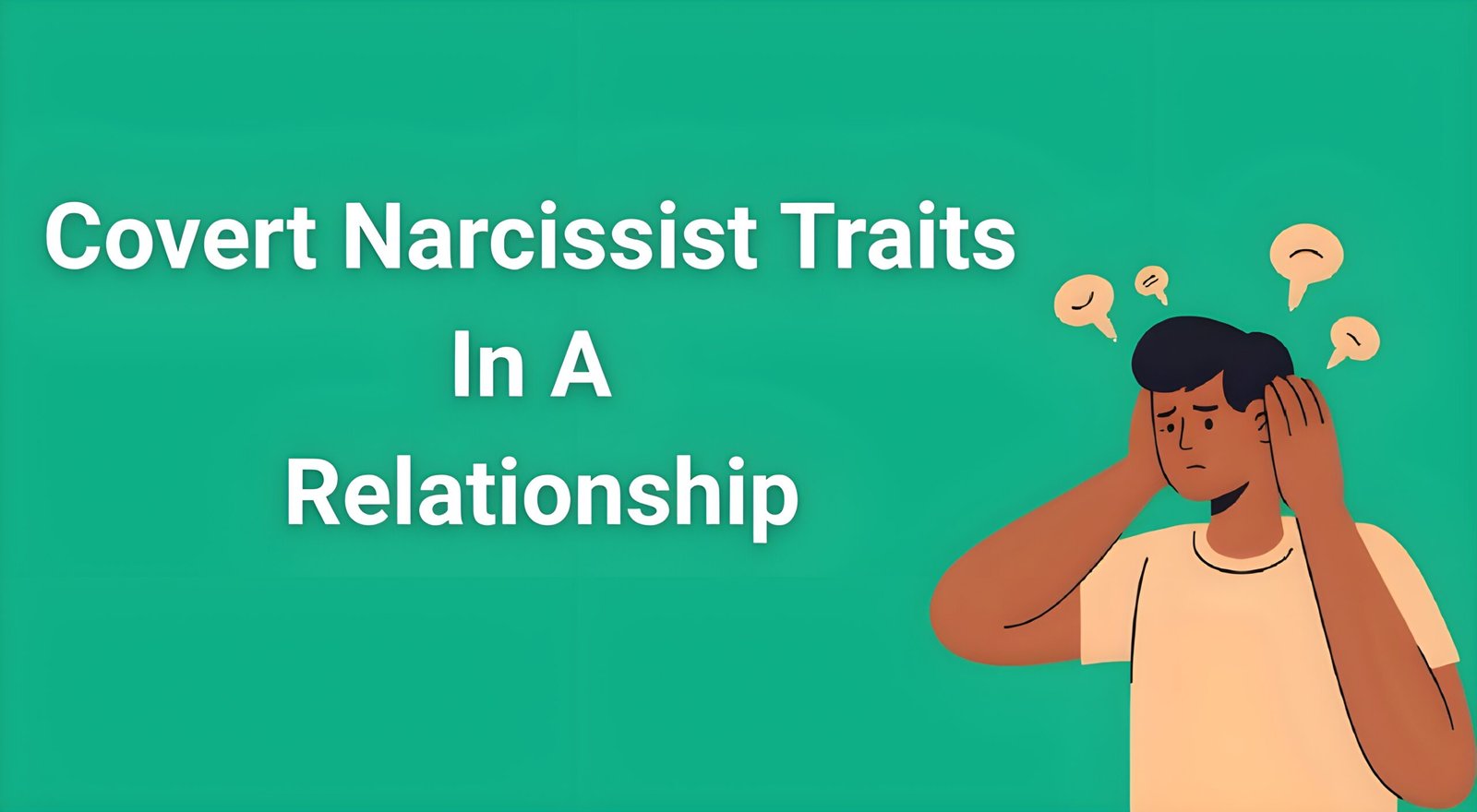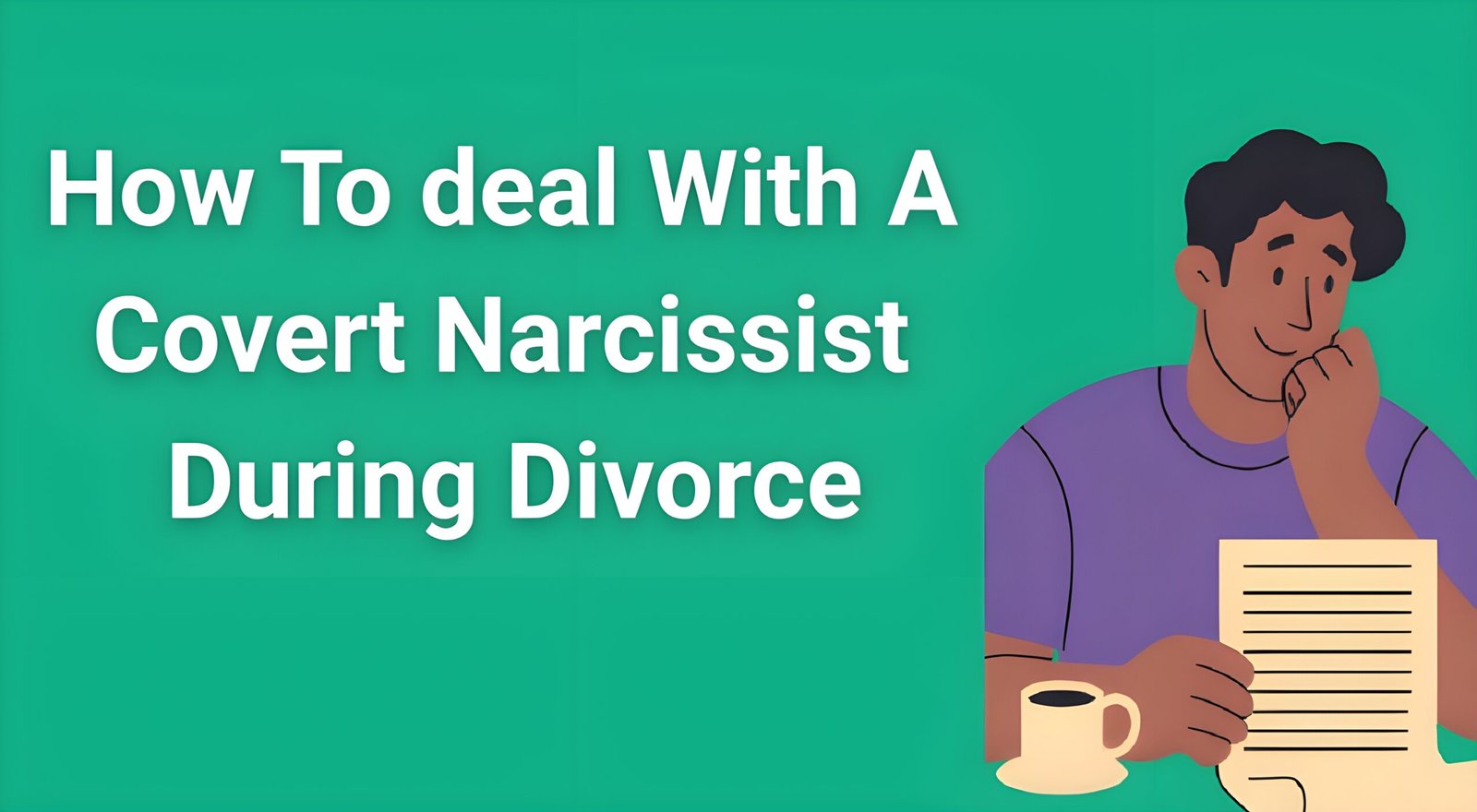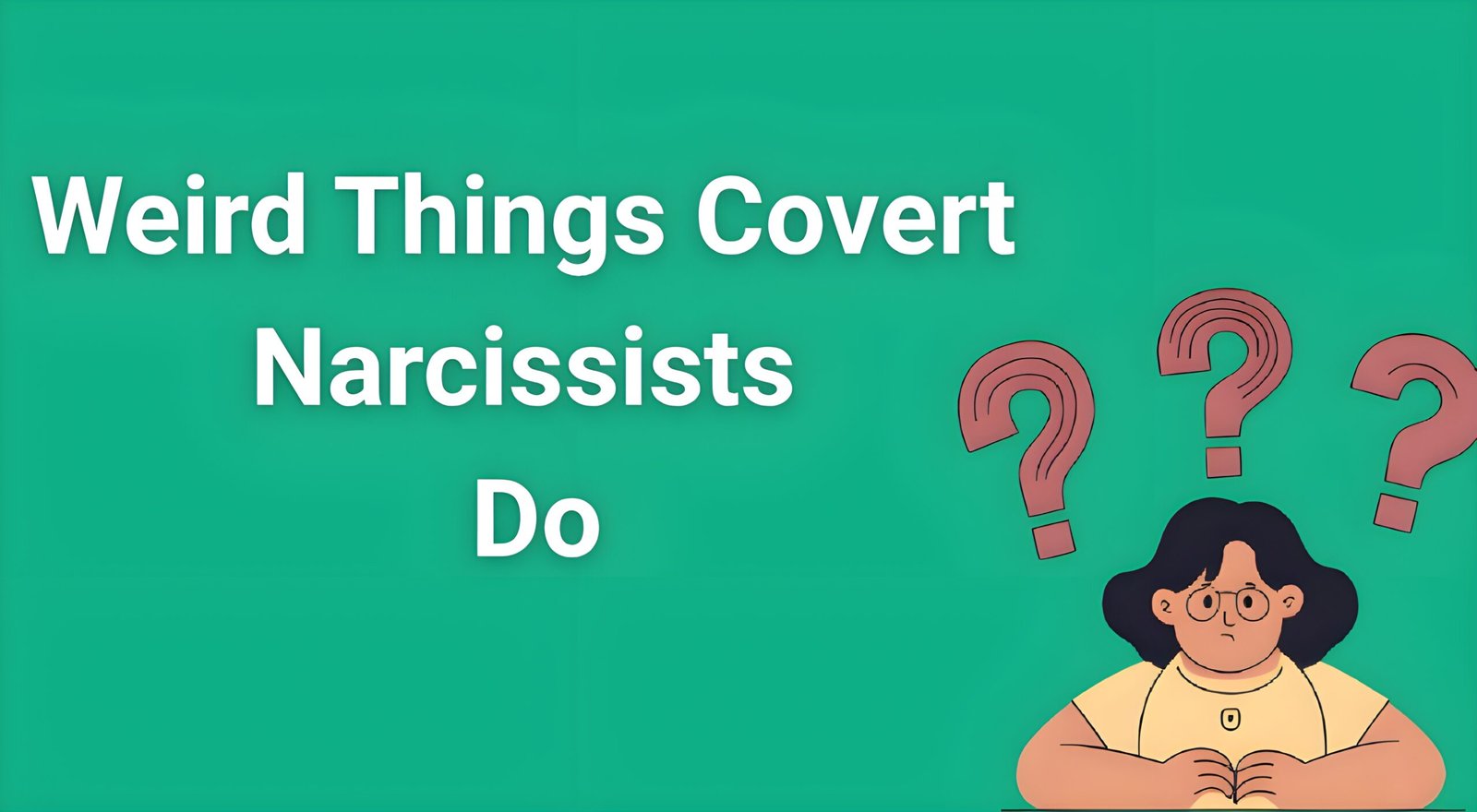Recognizing covert narcissist traits in a relationship can be incredibly challenging because these individuals are masters of disguise. Unlike their overt counterparts who display obvious grandiosity, covert narcissists fly under the radar with subtle manipulation tactics that leave you questioning your own reality.
- The Hidden Nature of Covert Narcissistic Abuse
- 15 Covert Narcissist Traits in Relationships
- The Psychological Impact on Partners
- Red Flags vs. Normal Relationship Issues
- Why These Relationships Are So Hard to Leave
- Breaking Free: First Steps Toward Recovery
- Getting Expert Analysis of Your Situation
- Breaking the Trauma Bond Cycle
- Frequently Asked Questions
- Conclusion
You’re not imagining things. That persistent feeling that something is “off” in your relationship – despite your partner appearing caring to others – is your intuition trying to protect you. Understanding these hidden patterns is the first step toward reclaiming your mental clarity and emotional wellbeing.
The Hidden Nature of Covert Narcissistic Abuse
Before diving into the specific traits, it’s crucial to understand why covert narcissist traits in a relationship are so difficult to identify. These individuals present themselves as empathetic, sensitive, and even vulnerable. They’ve perfected the art of appearing like the victim while systematically dismantling your confidence and sense of reality.
The confusion you feel isn’t accidental – it’s by design. Covert narcissists use sophisticated psychological tactics that create what experts call “cognitive dissonance” – the mental discomfort you experience when your partner’s actions don’t match their words, or when your gut instincts conflict with what you’re being told.
Am I Dealing With a Covert Narcissist — or Just Toxic Behavior?
15 Covert Narcissist Traits in Relationships
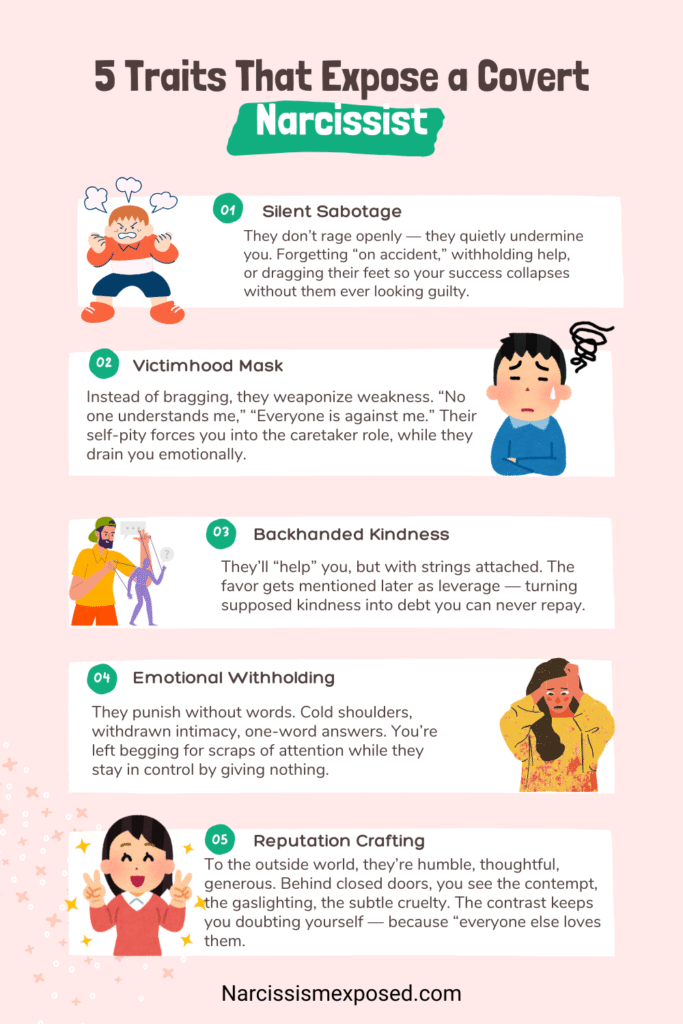
1. Master of the Victim Narrative
Every conversation somehow becomes about their pain, their struggles, or how life has been unfair to them. When you try to discuss relationship issues or express your needs, they skillfully redirect the focus back to their suffering.
Example: You say, “I felt hurt when you didn’t acknowledge my promotion.” They respond, “I can’t believe you’re attacking me when I’m dealing with so much stress at work. I’m barely holding it together.”
This covert narcissist trait in relationships ensures that your needs never get addressed while positioning them as the one who deserves sympathy and support.
2. Emotional Withdrawal as Punishment
Instead of explosive anger, covert narcissists use silence and emotional distance as weapons. They’ll give you the silent treatment for days or weeks after you’ve “disappointed” them, leaving you desperately trying to figure out what you did wrong.
This punishment system trains you to avoid bringing up legitimate concerns, gradually silencing your voice in the relationship. The withdrawal feels devastating because you’re left in emotional limbo, unsure of where you stand.
3. Passive-Aggressive Communication Style
They rarely express their displeasure directly. Instead, you’ll face sarcastic comments, backhanded compliments, “forgetting” important commitments, or subtle sabotage of things that matter to you.
Example: After you receive praise at work, they might say, “It’s nice that your boss appreciates mediocrity” or “I guess some people are just easily impressed.”
This indirect aggression allows them to hurt you while maintaining plausible deniability if confronted.
4. Gaslighting Through “Concern”
One of the most insidious covert narcissist traits in relationships is their ability to make you question your memory, perceptions, and sanity while appearing concerned for your wellbeing.
They’ll say things like:
- “You’re remembering that wrong, honey. I’m worried about your memory.”
- “You seem really unstable lately. Maybe you should talk to someone.”
- “I’m concerned about how emotional you’ve been getting over small things.”
This false concern masks their manipulation while making you doubt your own mental stability.
5. Conditional Love and Affection
Their love feels like it comes with strings attached. You receive affection and attention only when you’re serving their ego, meeting their needs, or reflecting positively on them. When you assert independence or have bad days, their warmth disappears.
This creates an addictive cycle where you constantly work to “earn” their love back, never realizing that genuine love shouldn’t be conditional on your performance.
6. Subtle Undermining of Your Achievements
Rather than openly criticizing your successes, they use subtle tactics to diminish your accomplishments. They might:
- Minimize your achievements: “Anyone could have done that”
- Redirect credit: “You couldn’t have done it without my support”
- Point out flaws: “It’s good, but I noticed you made several mistakes”
- Compare unfavorably: “Sarah’s promotion was much more impressive”
This covert narcissist trait in relationships slowly erodes your confidence and self-worth.
7. Playing Both Sides in Conflicts
They present themselves as the reasonable, peace-making partner while subtly provoking conflict. They might make inflammatory comments then act shocked when you react emotionally, positioning themselves as the calm, rational one dealing with your “overreactions.”
8. Isolation Through False Empathy
They don’t openly forbid you from seeing friends and family. Instead, they use concern trolling and subtle manipulation:
- “Your friend Sarah seems really toxic. I’m worried about her influence on you.”
- “Your mom always makes you upset when you visit. I hate seeing you hurt like that.”
- “I support whatever you want to do, but I’ll just stay home since your friends don’t seem to like me.”
Gradually, you find yourself cutting ties with support systems to avoid conflict or protect your partner’s feelings.
9. Emotional Vampirism
They consistently drain your emotional energy while giving little back. Conversations revolve around their needs, problems, and feelings. When you need support, they’re conveniently unavailable, too stressed, or they turn the conversation back to themselves.
You may notice feeling exhausted after interactions with them, even when nothing obviously negative occurred.
10. Projection of Their Own Flaws
This covert narcissist trait in relationships involves constantly accusing you of behaviors and characteristics that actually describe them. They might call you:
- Selfish (when they rarely consider your needs)
- Manipulative (while manipulating you)
- Ungrateful (despite your constant appreciation)
- Emotionally unstable (while they control through emotional manipulation)
11. Creating Dependency
They subtly undermine your independence and decision-making abilities. They might:
- Offer unsolicited “help” that creates reliance
- Question your judgment until you doubt yourself
- Handle important tasks “because you’re so busy” (taking control)
- Make financial decisions that increase your dependence
Over time, you may find you’ve lost confidence in your ability to manage your own life.
12. Hot and Cold Behavior Patterns
Their affection and attention come in unpredictable waves. They’ll shower you with love and attention (love-bombing), then withdraw without explanation (devaluation). This creates trauma bonding – an addictive cycle where you become hooked on the highs and terrified of the lows.
The unpredictability keeps you constantly alert and trying to figure out how to get back to the “good times.”
13. Rewriting History
They have an uncanny ability to reframe past events in ways that always favor them. Arguments you clearly remember having never happened, promises they made get “misunderstood,” and your legitimate grievances become examples of your “mental instability” or “oversensitivity.”
This systematic rewriting of your shared history is particularly damaging because it makes you question your own memory and perception of reality.
14. False Vulnerability to Manipulate
Unlike overt narcissists who display grandiosity, covert narcissists use vulnerability as a manipulation tool. They share carefully selected personal struggles or insecurities to:
- Gain your sympathy and caretaking
- Deflect from their harmful behavior
- Position themselves as the one who needs protection
- Make you feel special for being “trusted” with their pain
This manufactured intimacy creates a false sense of closeness while serving their agenda.
15. Boundary Violations Disguised as Love
They consistently ignore your boundaries while framing violations as expressions of love or concern:
- Reading your private messages “because I care about you”
- Showing up uninvited “because I missed you”
- Making decisions for you “because I want to help”
- Pushing for intimacy when you’ve said no “because we love each other”
These violations are always justified with romantic or caring language, making it difficult to recognize them as the boundary violations they are.
The Psychological Impact on Partners
Living with these covert narcissist traits in relationships takes a devastating toll on your mental health. Common effects include:
Chronic Self-Doubt: Constant gaslighting and reality distortion leave you questioning your own perceptions, memories, and judgment.
Emotional Exhaustion: The energy required to navigate their moods, avoid conflicts, and meet their ever-changing expectations leaves you depleted.
Anxiety and Hypervigilance: You become constantly alert to their mood changes, walking on eggshells to avoid triggering their disapproval or withdrawal.
Loss of Identity: Gradually, your own needs, preferences, and personality fade as you adapt to their demands and expectations.
Depression: The chronic invalidation and emotional neglect can lead to feelings of worthlessness and hopelessness.
Trauma Bonding: The cycle of intermittent reinforcement creates an addictive pattern where you become psychologically dependent on their approval.
Red Flags vs. Normal Relationship Issues
It’s important to distinguish between normal relationship challenges and patterns of covert narcissistic abuse. Here are key differences:
Normal Relationship Issues:
- Both partners take responsibility for problems
- Conflicts lead to mutual understanding and growth
- Respect for boundaries, even during disagreements
- Ability to repair and reconnect after arguments
- Both partners feel heard and validated
- Support during difficult times goes both ways
Covert Narcissist Traits in Relationships:
- Problems are always somehow your fault
- Conflicts never resolve, just get buried or dismissed
- Your boundaries are consistently violated or ignored
- You’re always the one apologizing and trying to repair
- Your voice and needs are regularly minimized
- Support and empathy flow in only one direction
Why These Relationships Are So Hard to Leave
Understanding why it’s difficult to leave relationships with these traits is crucial for anyone trying to break free:
Trauma Bonding: The intermittent reinforcement schedule creates a psychological addiction to the relationship. Your brain becomes wired to crave their approval and fear their rejection.
Gaslighting Effects: Months or years of having your reality questioned leaves you unsure of your own perceptions. You may genuinely believe their version of events over your own memories.
Learned Helplessness: Repeated attempts to address problems that get dismissed or turned against you can create a sense of powerlessness.
Financial/Practical Entanglement: Many covert narcissists create situations where leaving becomes practically difficult through financial control or other dependencies.
Fear of Their Reaction: Having witnessed their ability to play victim and turn others against you, the fear of what they might do if you leave can be paralyzing.
Hope for Change: Because they show glimpses of the loving person they can be, you may hold onto hope that things will improve if you just try harder.
Breaking Free: First Steps Toward Recovery
If you recognize these covert narcissist traits in your relationship, know that validation and recovery are possible. Here are essential first steps:
Document Your Reality: Start keeping a private journal of incidents, conversations, and your feelings. This helps combat gaslighting and provides clarity on patterns.
Rebuild Your Support Network: Gradually reconnect with friends and family members. Their outside perspective can help you see the situation more clearly.
Seek Professional Support: A therapist experienced in narcissistic abuse can provide validation, help you rebuild your sense of reality, and create a safe exit plan if needed.
Learn About Trauma Bonds: Understanding the psychological mechanisms keeping you attached can help you make more informed decisions about your future.
Practice Self-Care: Begin prioritizing your own needs and feelings again. This might feel selfish at first, but it’s essential for healing.
Getting Expert Analysis of Your Situation
If you’re still questioning whether you’re dealing with covert narcissist traits in your relationship, professional analysis can provide the clarity you desperately need. Sometimes an outside expert’s perspective is necessary to cut through the confusion and gaslighting you’ve experienced.
Getting a comprehensive assessment of your specific situation can help you understand exactly what you’re dealing with, why you feel so confused, and what steps to take next. This kind of personalized analysis takes into account the unique dynamics of your relationship and provides tailored guidance for your circumstances.
Still Living With Them? You’re Not Helpless.
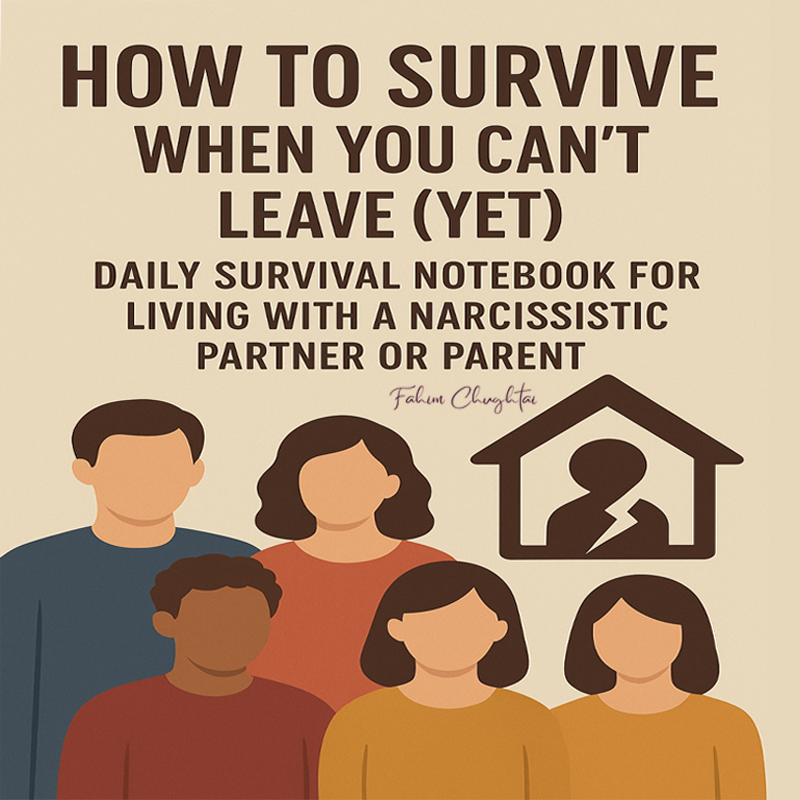
Professional evaluation can validate your experiences and provide the clarity needed to make informed decisions about your future. Many people find that having their situation analyzed by a specialist helps them finally understand why traditional relationship advice hasn’t worked and why they’ve felt so lost.
Breaking the Trauma Bond Cycle
One of the most challenging aspects of relationships involving covert narcissist traits is the trauma bond that develops. This isn’t simply “loving someone who’s bad for you” – it’s a neurological addiction that requires specific strategies to overcome.
You’ve Seen the Patterns. Now Break the Bond.
Breaking free from trauma bonds involves understanding that your attachment isn’t your fault, but your freedom is your choice. The cycle of intermittent reinforcement that creates these bonds can be broken with the right knowledge and tools.
Many survivors find that structured, day-by-day recovery programs are essential for rewiring their brain chemistry and building new, healthier patterns. The key is using science-based approaches rather than relying on willpower alone, which rarely works against the powerful neurological effects of trauma bonding.
Frequently Asked Questions
Q: How can I tell if my partner is a covert narcissist or just going through a difficult time?
A: Look for consistent patterns over time rather than isolated incidents. Covert narcissist traits in relationships involve systematic behaviors that persist regardless of circumstances. Additionally, healthy partners take responsibility for their actions and show genuine concern for how their behavior affects you.
Q: Can covert narcissists change with therapy or love?
A: While change is theoretically possible, it requires the person to acknowledge their harmful behaviors and commit to intensive therapy. Most covert narcissists don’t believe they have a problem and resist treatment. Waiting for change often leads to years of continued abuse.
Q: Is it possible to have a healthy relationship with someone who shows these traits?
A: Healthy relationships require mutual respect, empathy, and the ability to take responsibility for one’s actions. These core requirements are incompatible with narcissistic personality patterns. Your wellbeing should never be sacrificed hoping someone will change.
Q: How do I protect my children from these dynamics?
A: Children are particularly vulnerable to covert narcissistic manipulation. If you can’t leave immediately, focus on maintaining their sense of reality, providing emotional validation, and teaching them healthy boundaries. Professional guidance is crucial for protecting children in these situations.
Q: What if everyone else thinks my partner is wonderful?
A: This is extremely common with covert narcissists, who excel at public image management. Trust your lived experience over others’ perceptions. The people who matter will listen when you’re ready to share your truth.
Q: How long does recovery take after leaving this type of relationship?
A: Recovery timelines vary, but most survivors notice significant improvements in clarity and emotional stability within the first few months. Complete healing often takes 1-2 years with proper support. The key is using targeted recovery strategies rather than hoping time alone will heal the trauma.
Conclusion
Recognizing covert narcissist traits in relationships is often the first step toward reclaiming your sanity and self-worth. These subtle patterns of manipulation and control can be incredibly difficult to identify, especially when you’re living them daily.
Remember that your feelings of confusion, exhaustion, and self-doubt are not character flaws – they’re natural responses to psychological manipulation. The fact that you’re seeking information about these dynamics shows that your intuition is working to protect you.
Your experiences are valid, your perceptions matter, and you deserve relationships built on genuine respect and mutual care. Whether you choose to stay and set firmer boundaries or decide to leave entirely, having clarity about what you’re dealing with empowers you to make informed decisions about your future.
Recovery from relationships involving these dynamics is absolutely possible. With the right support, tools, and understanding, you can rebuild your confidence, trust your own perceptions again, and create the healthy relationships you deserve.
You’re not crazy, you’re not too sensitive, and you’re not asking for too much. You’re simply recognizing that you deserve better – and that recognition is the beginning of your journey back to yourself.

